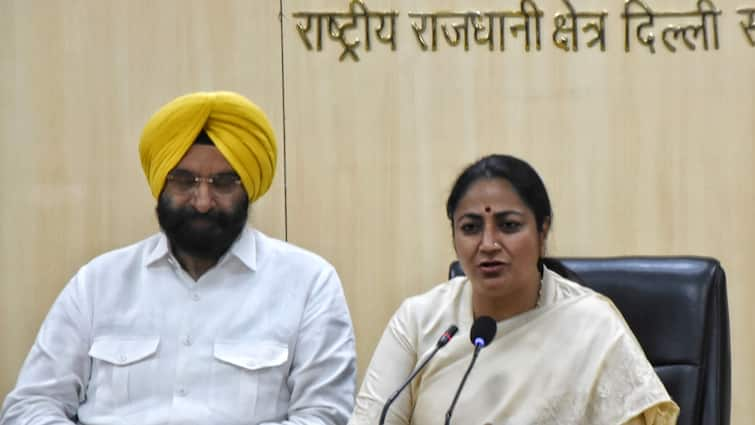After Delhi’s ambitious experiment to trigger artificial rainfall as part of its anti-pollution drive fell short of expected results, Environment Minister Manjinder Singh Sirsa on Wednesday attributed the setback of the two cloud seeding trials to insufficient moisture levels in the atmosphere.
Speaking exclusively to ABP News, Sirsa revealed that each round of cloud seeding costs around ₹30 to ₹35 lakh, with the expense rising to nearly ₹3 crore for about 9–10 such operations.
According to Sirsa, the Delhi government and the Indian Institute of Technology (IIT) Kanpur jointly conducted two trials of cloud seeding, but neither succeeded in producing rainfall. “During Tuesday’s trial, there was only 15 per cent humidity in the atmosphere, whereas a minimum of 50 per cent is required for artificial rain,” he said.
The minister explained that inadequate moisture prevented the process from yielding results despite coordinated efforts.
Sirsa added that IIT Kanpur’s research team has developed a new chemical mixture that could enable cloud seeding even under relatively dry conditions. Citing data from the India Meteorological Department (IMD), he said humidity levels were expected to rise later in the evening, after which another round of cloud seeding would be planned.
He stressed that the government remained committed to improving Delhi’s air quality, saying, “Our efforts will continue.”
Majinder Sirsa Responds To AAP’s Attacks
Meanwhile, Aam Aadmi Party (AAP) leader and former Delhi Health Minister Saurabh Bharadwaj criticised the experiment, calling it a misuse of taxpayers’ money.
Responding to the allegations, Sirsa said, “When their government was in power, they kept talking about cloud seeding for ten years but did not even sign an MoU. We took the initiative and carried out the first trial. So what if the results were not immediate? We will not give up.”
Sirsa further claimed that Bharadwaj’s criticism stemmed from frustration, saying, “Their government only talked, while the present one has acted.”
The project marks Delhi’s first attempt at artificial rainfall in collaboration with scientists from IIT Kanpur, aiming to combat worsening air pollution in the capital. Cloud seeding is a weather modification technique successfully used in countries such as the United States, China, and the United Arab Emirates to address drought and air quality concerns.


